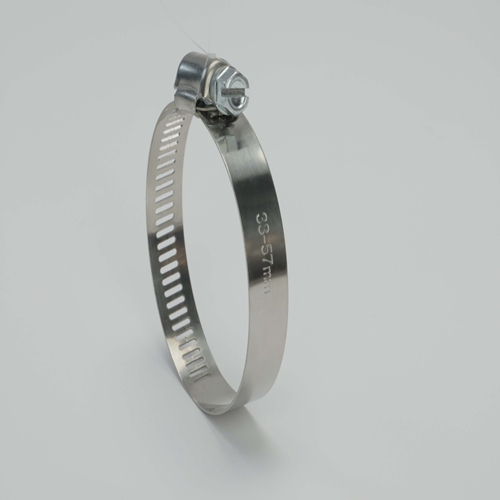- Phone:+86-17331948172 +86-0319-8862898
- E-mail: inquiry@puxingclamp.com
okt . 12, 2024 12:39 Back to list
small hose clamps for fuel lines suppliers
Small Hose Clamps for Fuel Lines A Comprehensive Overview for Suppliers
In the automotive and industrial sectors, ensuring the integrity of fuel lines is paramount. Fuel lines are responsible for transporting fuel from the tank to the engine, and any failure in this system can lead to catastrophic consequences, including engine malfunction or even a fire hazard. One of the critical components that ensure the reliability of fuel lines is the small hose clamp. In this article, we will explore the importance of small hose clamps for fuel lines, their various types and specifications, and what suppliers should consider when sourcing these crucial components.
Importance of Hose Clamps in Fuel Lines
Hose clamps are mechanical devices used to fasten hoses onto fittings such as pipes or nozzles. In the context of fuel lines, they play a vital role by preventing leaks, maintaining pressure, and ensuring that the fuel system operates efficiently. A small hose clamp is particularly advantageous in confined spaces where larger clamps may not fit. They are designed to provide a tight seal around the hose, which prevents fuel from seeping out and allows for optimal fuel delivery to the engine.
Types of Small Hose Clamps
There are several types of small hose clamps available, and each type is designed for specific applications within fuel line systems
1. Screw Type Hose Clamps The most common type, these clamps tighten around the hose using a screw mechanism. They can be adjusted for various sizes, making them versatile for different applications.
2. Spring Clamps These are usually made of stainless steel and are designed to create a constant pressure on the hose. Spring clamps are particularly useful in applications where vibrations might affect the integrity of the seal.
3. Worm Gear Clamps A variation of screw type clamps, worm gear clamps use a metal band with a worm gear mechanism for securing hoses. This type provides a strong and durable connection.
4. Quick-Release Clamps These clamps are designed for ease of use, allowing for quick access to the fuel line without the need for tools. They are ideal for applications that require frequent maintenance.
5. Radiator Hose Clamps Although primarily used for radiator hoses, these clamps can also be suitable for fuel lines, particularly in high-temperature and high-pressure environments.
Material Considerations
When selecting small hose clamps for fuel lines, the material from which they are made is critically important. Here are some common materials used in the production of these clamps
small hose clamps for fuel lines suppliers

- Stainless Steel Renowned for its corrosion resistance and durability, stainless steel is the preferred material for fuel line clamps, especially in environments exposed to fuel and other harsh chemicals
.- Zinc-Plated Steel This material offers some resistance to corrosion but is generally less durable than stainless steel. It may be suitable for less demanding applications.
- Plastic While not as robust as metal options, plastic clamps can be advantageous in lightweight applications or for low-pressure systems. They are also resistant to corrosion, making them suitable for certain environments.
Suppliers What to Look For
Suppliers of small hose clamps for fuel lines need to understand the specific requirements of their clients. Here are some factors to consider when searching for suitable suppliers
1. Quality Assurance Ensure that the supplier adheres to quality standards and provides certifications for their products. The use of high-quality materials is essential to avoid failure in fuel line applications.
2. Customization Options Different engine models and fuel systems may require custom sizes or specifications. Suppliers offering customization are more likely to meet specific client demands.
3. Certifications and Compliance Look for suppliers whose products comply with industry standards such as ISO, SAE, and others relevant to automotive and industrial applications.
4. Customer Support A reliable supplier should also provide excellent customer service, assisting clients with inquiries and offering technical support as needed.
5. Competitive Pricing While cost is an important factor, it should not come at the expense of quality. Seek a supplier that offers a balance of price and product integrity.
Conclusion
In summary, small hose clamps for fuel lines are critical components for ensuring the safe and efficient operation of fuel systems in a wide array of applications. As a supplier, understanding the different types, materials, and considerations when sourcing these clamps is essential. By partnering with reputable manufacturers and providing quality products, suppliers can help their clients maintain the safety and reliability of their fuel systems.
-
Premium 201 Stainless Steel Strip - Durable & Cost-Effective
NewsAug.23,2025
-
Precision High Quality Stainless Steel Strip Coils & Rolls
NewsAug.22,2025
-
Durable Adjustable Hose Clamps for Pipes & Radiators
NewsAug.21,2025
-
Heavy Duty Hose Clamps: Premium Stainless Steel & Adjustable
NewsAug.19,2025
-
Large Stainless Steel Adjustable American Type Hose Clamp - Hebei Pux Alloy Technology Co., Ltd
NewsAug.18,2025
-
Large Stainless Steel Adjustable Hose Clamp - Hebei Pux Alloy|Durable Corrosion Resistance&Adjustable Design
NewsAug.18,2025




